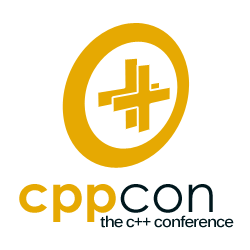Bjarne Stroustrup Interview at cppcon 2016
 An interesting talk!
An interesting talk!
Bjarne Stroustrup Interview at cppcon 2016
Sum up:
Steve Carroll and Gabriel Dos Reis chat with Bjarne Stroustrup, the inventor of C++, about his keynote this year at cppcon 2016. Bjarne talks about the past, present, and future of C++, and how to be a good programmer.

 The CppCon YouTube Channel now has all 2016 videos.
The CppCon YouTube Channel now has all 2016 videos. Have you registered for CppCon 2016 in September? Don’t delay –
Have you registered for CppCon 2016 in September? Don’t delay –  Have you registered for CppCon 2016 in September? Don’t delay –
Have you registered for CppCon 2016 in September? Don’t delay –